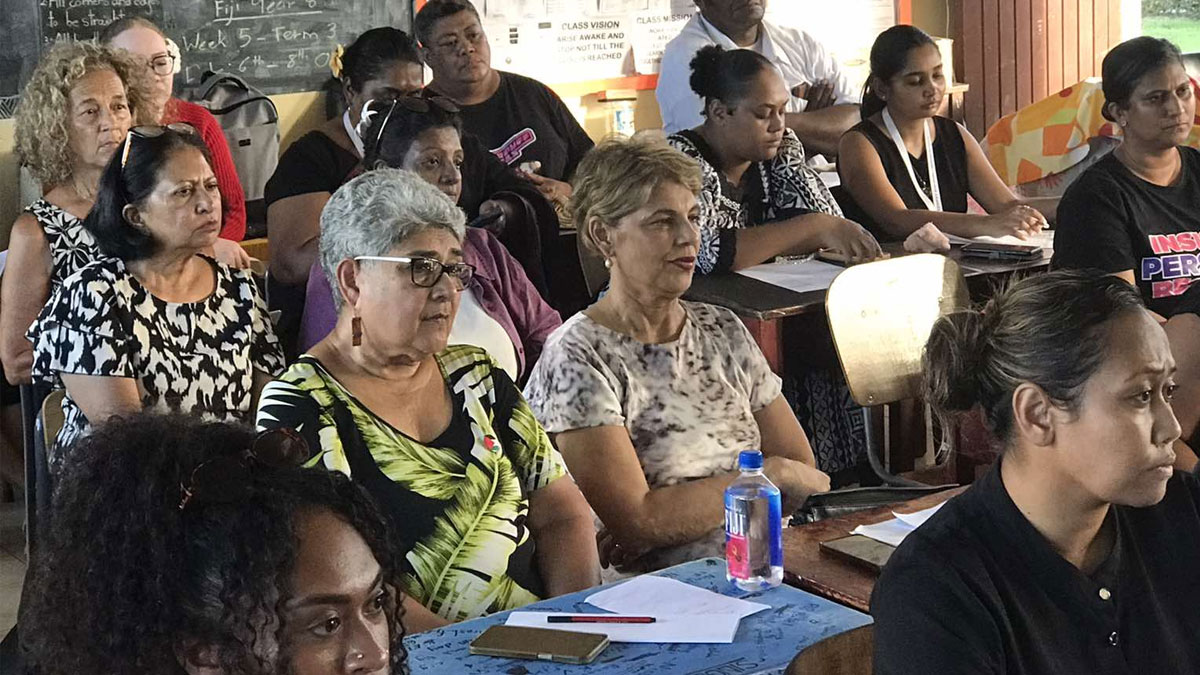
Calls are being made to increase the number of seats in Parliament to allow for the temporary special measure of reserving at least 30 percents for women.
Imrana Jalal, who is a founding member of the Fiji Women Rights Movement highlighted this while making a joint submission by the FWRM and Fiji Women’s Crisis Centre to the Fiji Electoral Law Reform Commission at Bhawani Dayal Memorial Primary School yesterday as public consultation on the review of the three electoral laws continue.
She says globally, the resistance is stronger when you try to allocate existing seats.
Jalal says there should be 30 percent national constituencies, geographically rooted, so that people can go to their female MP and say raise their concerns about issues such as health services, road and water.
Call made to increase Parliamentary seats to allow for reservation of seats for women
— fijivillage (@fijivillage) April 11, 2025
Read more : https://t.co/hbaxuRn9g7 pic.twitter.com/8BppGq49HW
The renowned lawyer says one of the problems with the current system is that people do not know who to go to and this is why they are advocating for a system that is geographically based.
Meanwhile FWCC’s Manager Legal, Miliana Tarai says violence against women in politics has a silencing effect, discouraging women from political participation, infringing on their full political rights and criminalising violence against women in politics and creating a safe reporting and support mechanism is crucial to changing attitudes and empowering women to engage in the political sphere.
She says the legislation needs to create an accessible and a safe channel for women to report incidents and receive necessary support, also ensuring their safety and encouraging their participation
Tarai says women in politics face constant harassment in the form of derogatory and demeaning remarks, mostly of a highly sexualized nature, something which their male counterparts do not have to endure.
Tarai says a report that interviewed women and men in political spaces in Fiji, Solomon Islands and PNG captured that women in politics in these three countries are often subjected to psychological violence, hate speech, defamation character, assassination, circulation of obscene materials that depict them, threats, intimidation, harassment, insults, verbal and physical abuse.
She says with increasing digitalization and the rise of technology and social media platforms, these acts of violence against women in politics are further exacerbated because it's easy to manipulate information and images nowadays.
The public consultation today was held from 10am to 2pm at the Namosi Provincial Council Hall and from 4pm to 6pm at Rampur College.
Stay tuned for the latest news on our radio stations

